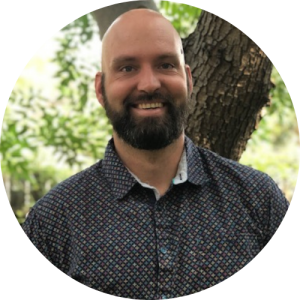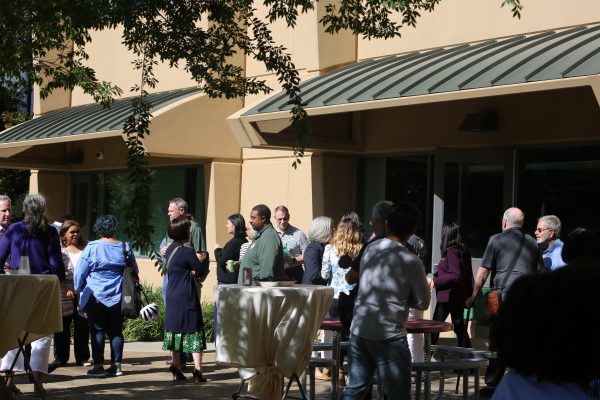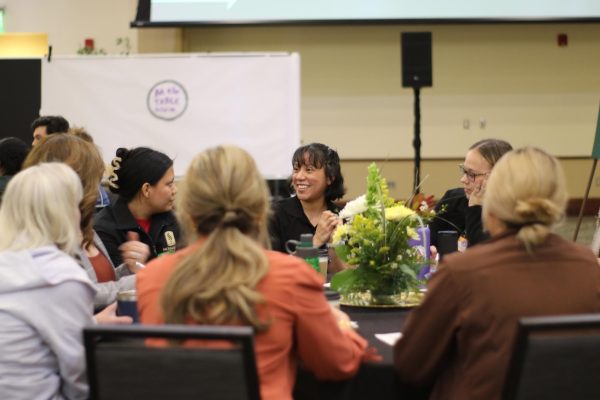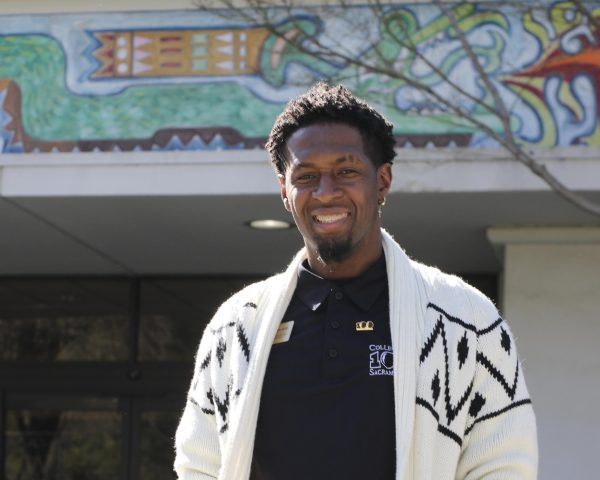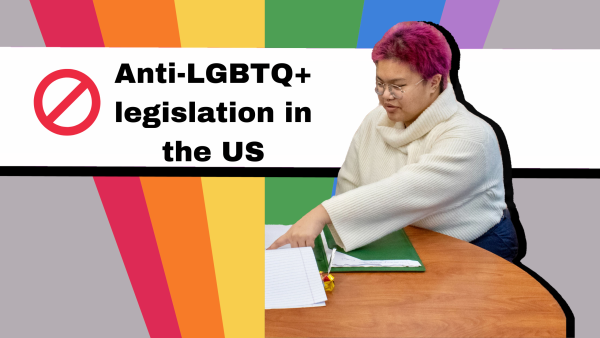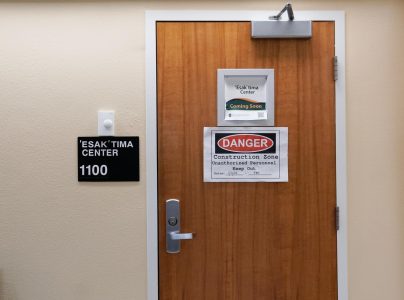State funding allows Sac State to expand immigration services
A third lawyer has been added to the DRC
Screenshot via Dreamer Resource Center Facebook page
A pin with the Dreamer Resource Center sign. The Dreamer Resource center recently received funding from the CSU that allowed them to hire a third lawyer to offer immigration services.
October 8, 2019
For two years the Dreamer Resource Center (DRC) at Sacramento State, in collaboration with non-profit groups and pro-bono lawyers, has been providing legal immigration counseling for students and their families.
With the passage of the California state budget in June, California State Universities have been given funds to offer immigration services to undocumented students and staff. This means that the DRC can expand the services they already offer.
“About two years ago, there was a clear need for immigration legal consultation for students, faculty and staff,” said Viridiana Diaz, assistant vice president for strategic diversity initiatives.
There will now be a lawyer from the Coalition for Human and Immigrant Rights Los Angeles in the center every Friday from 8 a.m. to 5 p.m. to offer counsel to students and staff in need of immigration services.
“It expands our services beyond the limitations we had,” Diaz said regarding the services that will be provided by Andres Guerra, the lawyer from CHIRLA assigned to Sac State.
A primary service the clinic will be offering to those in need is renewing Deferred Action for Childhood Arrivals applications. With the addition of Guerra, the clinic will be able to help students in situations where they may be able to change their undocumented status or find avenues to apply for permanent residency.
RELATED: Sac State connects undocumented students to resources at DRC open house
“We are essentially doing all immigration and humanitarian work other than deportation court,” Guerra said.
Guerra’s first day at the DRC was Sept. 27 and he said they saw three students, two of which were able to start the process of applying for DACA renewal.
There is additional urgency for these services with the Supreme Court expected to hear arguments this November challenging President Donald Trump’s decision in September 2017 to end DACA, according to the National Immigrant Law Center.
“The decision on DACA could be as early as January or February and we are not expecting a favorable outcome,” Guerra said.
Currently, students who were DACA eligible before Trump’s decision can still qualify for a DACA renewal, Diaz said.
In addition to DACA renewal services, the clinic can offer “legal screening to see if status can be adjusted,” according to Erik Ramirez, program coordinator for the DRC.
Ramirez said that the hope is that, with the addition of Guerra, they will be able to take on longer cases and look into other options that could allow students to become permanent residents.
There are other potential options that could change a person’s status. U visas, for example, are given in cases where a person who was the victim of a crime, reported it and cooperated with law enforcement would be protected from deportation according to Guerra.
He said that other protections and status changes can be offered based on legislation from the Violence Against Women Act.
The services are not just available to students and staff at Sac State but are also available to family members of students with mixed status, meaning that if a student is a legal citizen but they have an undocumented family member, the DRC can offer them help.
Guerra said that it is preferable for those family members to be in attendance when seeking legal guidance.
With the extra help, the clinic will be able to take walk-in appointments from 3 to 5 p.m. every Friday. Diaz still recommended making an appointment to ensure that clients can be seen that same week.
“The demand is so high for these services (that) you (could) have people waiting for hours and we don’t want that,” Diaz said, in regards to previously having walk-in appointments. “We recognize that it takes, especially for students, a lot of courage to even come in and request that service.”
Guerra said they are also hoping to hold a DACA seminar near the end of this semester and another one early in the spring semester. The seminars will be open for 10 to 15 students and the goal would be for students to have their DACA renewal submitted in one day.
The DRC is located in Riverfront Center room 1022. Students can apply to be a part of the DRC here or for more information call (916) 278-7241.



























































































































